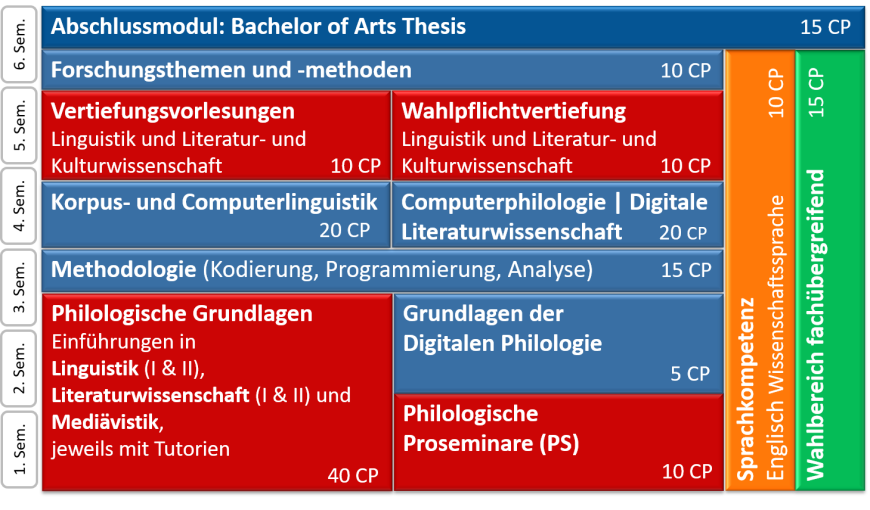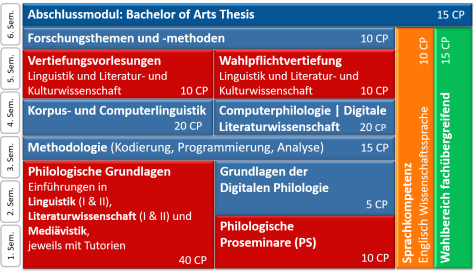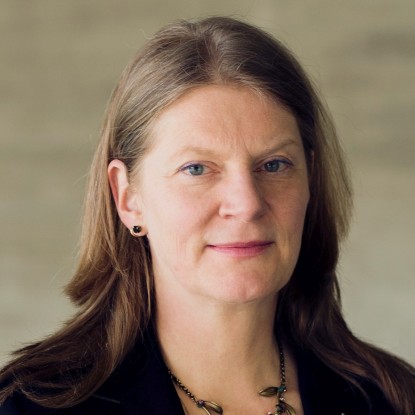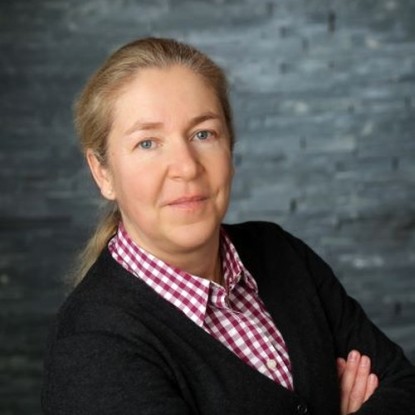The course of studies (180 ECTS points) is divided into areas that cover different interconnected topics. In the introductory phase of the course of studies (first year), the Philological Foundations are addressed by means of introductory lectures and accompanying tutorials in the fields of Linguistics, Literary Studies, and Diachronic Linguistics. The subject area is enhanced by introductory Philological Seminars. In the subject area Foundations of Digital Philology, a lecture offers an overview of research areas and perspectives of digital philology.
The subject area of Methodology, which primarily focuses on digitality and methodological aspects – includes tutorials in text encoding in TEI-XML, corpus structure, corpus processing, annotation and text analysis, as well as an introduction to programming in the field of corpus and computational linguistics. Based on seminars and tutorials, the subject areas Corpus- and Computational Linguistics and Computer Philology | Digital Literary Studies comprise an overview of exemplary research topics and areas of application. An overview of different philological topics is offered through a set of Advanced Lectures.
The curriculum also includes an elective required area (Wahlpflichtschwerpunkt) in Linguistics and Literary and Cultural Studies / Edition Philology / Media History, in which the students can set priorities in their curriculum.
The subject area Language Competence comprises courses in English as a scientific language. On the one hand, the students are supposed to sharpen their general knowledge of English (as a foreign language), while at the same time acquiring specialist language skills in English, for example by addressing topics such as academic writing or giving scientific talks.
A General Electives area allows students to strengthen their individual profile by choosing from a range of different lectures/courses, workshops, and internships. In addition to language courses, there are specialist courses from other disciplines and offers focusing on key competences, e.g. team training.
The course of studies is concluded with a Bachelor of Arts thesis in one of the subjects. The thesis will be prepared over a period of 12 weeks under the supervision of lecturers of the institute.
Additional information
Regulations for the degree BA Digital Philology (opens in new tab) (2019) (from page 72)
Module handbook B.A. Digital Philology (opens in new tab) (2019)
Equivalence table B.A. Digital Philology (opens in new tab) (2015-2019)
Regulations for the degree BA Digital Philology (opens in new tab) (2015) (from page 13)
Module handbook B.A. Digital Philology (opens in new tab) (2015)





